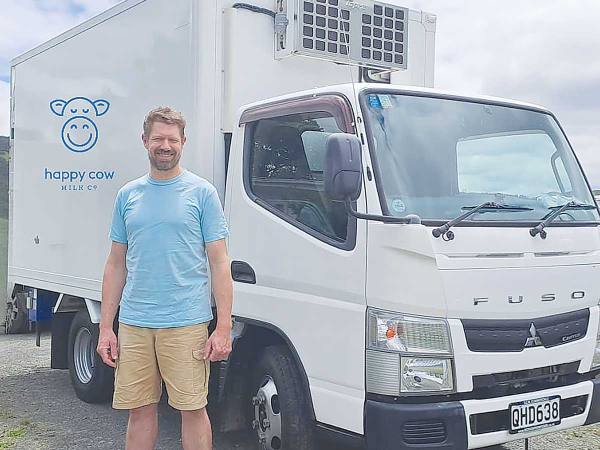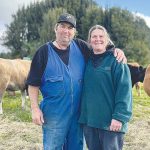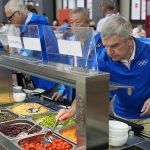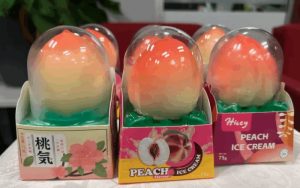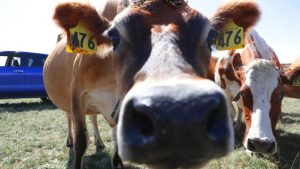
A Canterbury man who has been working for several years to establish what he calls “a more caring, kinder and fairer” dairy system is now up and running in the North Island after establishing a partnership with a Waikato dairy farm.
Glen Herud’s Happy Cow brand has gone through several iterations but now exists as a ‘factory in a box’ pasteurisation and refrigeration plant, supplying Auckland consumers by way of about a dozen collection points dotted around cafes, convenience stores and the like.
The plant is installed on a Te Kauwhata dairy farm where the farmer has devoted a small number of cows from his main herd to supplying Herud’s system.
“You can only buy our milk online through our website. And then we drop it off at several collection points about Auckland and people just go and pick up their milk. And then their credit card is charged,” explains Herud.
“We’re not going through retailers or anything like that.”
“A lot of farmers just want to produce the milk and have it taken away.
“When you start selling milk direct you must start producing really good quality milk and whatever Fonterra calls good quality is still not really what we call good quality. There’s a little bit of extra work involved.”
Herud says his partner is a sharemilker who is “pretty onboard with what we are doing”.
“We’ll take more and more as we grow but we’ll probably only ever take 50% of their milk.”
Herud first featured in the pages of Dairy News in 2016 when he was milking his own small herd near Christchurch using a 15-metre custom trailer housing a milking machine, pasteuriser and bottling plant, and serving a small customer base including cafes and supermarkets. He also won an environmental award for the way the mobile plant could be taken to where the cows graze, to minimise pugging.
His philosophy also includes animal welfare priorities such as leaving calves with their mothers to wean naturally.
By 2018, however, he had to concede that it was too expensive to operate at small scale and moved to develop his factory-in-a-box model for installation on partner farms.
Herud says he is now building an improved second prototype and hoping to find a Canterbury partner farm.
“We will be back down to Christchurch shortly. That’s the plan.”
You can now read the most important #news on #eDairyNews #Whatsapp channels!!!
🇺🇸 eDairy News INGLÊS: https://whatsapp.com/channel/0029VaKsjzGDTkJyIN6hcP1K
